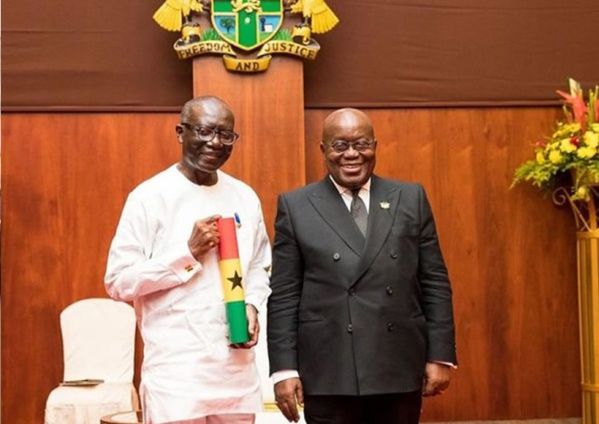Ghana's fiscal position experienced a significant deterioration in 2022 compared to the previous year, according to the State of the Ghanaian Economy report released by the Institute of Statistical, Social and Economic Research (ISSER) on October 31, 2023.
The report highlights several key factors that contributed to this decline and paints a concerning picture of the country's economic outlook.
The report reveals that Ghana's fiscal deficit target for 2022 was set at 7.4% of GDP, indicating an ambitious fiscal consolidation effort of 1.8% of GDP from the 9.2% deficit recorded in 2021.
However, the actual fiscal deficit outturn for 2022 was 10.7% of GDP, significantly exceeding the target.
"The outturn fiscal deficit of 10.7% by the end of 2022, against the revised target of 6.6%, indicates an unsuccessful consolidation and a worsening of the fiscal position compared to 2021," the ISSER report said.
One of the primary contributing factors to the deteriorating fiscal position was tightened global financing conditions, which limited Ghana's access to international capital markets.
Additionally, the delayed passage of the e-levy, domestic financing challenges, and the rapid depreciation of the Ghanaian cedi all played a role in increasing the country's debt obligations.
The fiscal deficit was primarily driven by higher government expenditure and lower revenue compared to the programmed targets.
Consequently, Ghana's public debt as a percentage of GDP surged to 70.7% in 2022, up from 64.5% in 2021.
Quoting the report, "The increase in nominal debt was due to spill-over effects from adverse global financing conditions, a loss of investor confidence due to credit downgrades, diminished access to international capital markets, significant capital flow reversals, and domestic financing challenges."
The ISSER report concludes that Ghana's fiscal performance in 2022 reflects an "unsuccessful fiscal consolidation and underperformance of budget and revised fiscal deficit targets."
This concerning trend raises significant questions about the nation's ability to stabilise its fiscal situation and regain the confidence of international investors.
The report's findings underscore the need for effective fiscal management, reforms, and policies to address the challenges that contributed to Ghana's worsening fiscal position in 2022.
Government and relevant stakeholders will likely need to take swift and decisive actions to mitigate the negative economic impact of these developments and promote long-term fiscal stability.
Latest Stories
-
Gov’t secures deal with 9 more gold miners to buy 20% of their output
2 hours -
Out-of-form Djokovic withdraws from Italian Open
3 hours -
McDonald’s sales drop as diners face ‘uncertainty’
3 hours -
Children fall ill in India ‘after dead snake found in school meal’
3 hours -
Apple says most US-bound iPhones no longer made in China
3 hours -
Clooney gets Tony nomination for Broadway debut
4 hours -
Trump ousts Waltz as national security adviser and nominates him for UN post
4 hours -
US judge blocks use of Alien Enemies Act to deport Venezuelans
4 hours -
Visit Rwanda signs new deal as Arsenal protests continue
6 hours -
South Africa sets up inquiry into apartheid prosecutions
6 hours -
Mahama proposes ceremony to honour Agya Koo Nimo
6 hours -
Tanzanian priest – and government critic – brutally attacked
6 hours -
Missing South African police officers found dead in river after six days
7 hours -
Mali coup leader wins backing to be president for next five years
7 hours -
Blackstar Experience: Government’s flagship programme for tourism, culture and creative arts launched
7 hours

